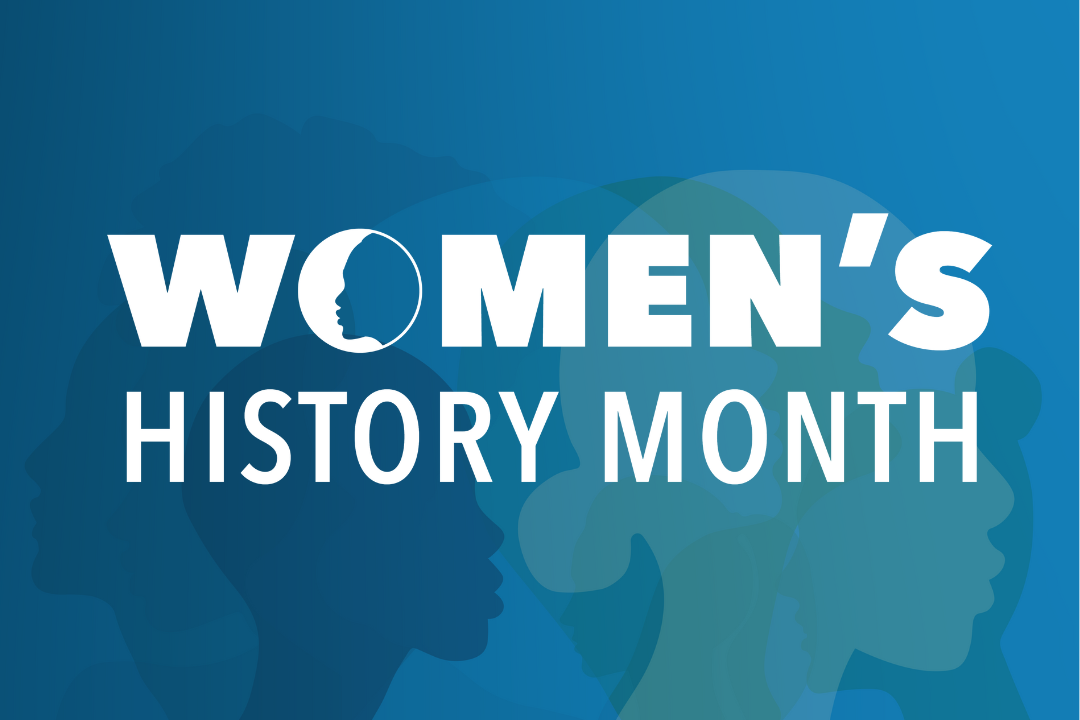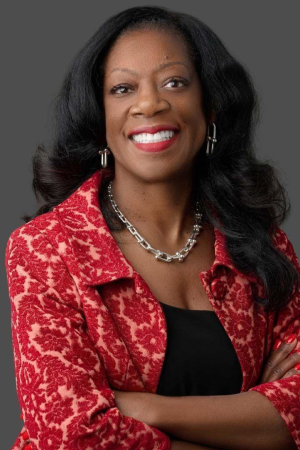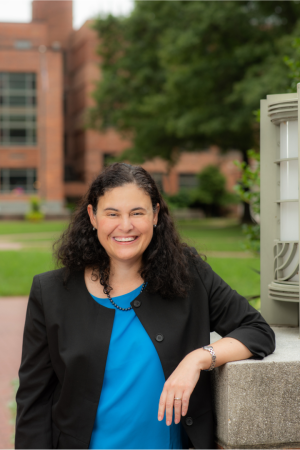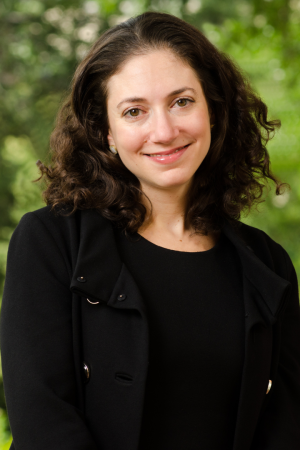As Women’s History Month comes to a close. We are pleased to highlight three extraordinary GW Law faculty members whose influential scholarship focuses on advocating for women’s rights and equality on a national and global scale.
A Reflection on Being "The First"
I am often introduced as GW Law’s first woman dean. Indeed, I am proud to have this honor. But it is not without a twinge of remorse that I accept the honor because I know full well that over the 157 years before I became dean, there have been many women before me that had the intelligence, leadership, and strength to hold the position of dean. But they were denied the privilege and honor of leading this law school because they were women. And so I celebrate the accomplishment—and commit to lifting up the great women who are my colleagues at GW Law during this month and throughout my deanship. I hope you enjoy reading about these three superstars—Dean Celorio, and Professors Schoenbaum and Suter—as much as I enjoy the immense privilege of being their colleague.
Associate Dean Rosa Celorio
I have been incredibly fortunate in pursuing a career focused on international human rights issues, and particularly those related to women’s rights. While growing up in Puerto Rico, I worked at women’s shelters, in which I met many domestic violence victims. Later, while working for the United Nations and the Human Rights Commission of the OAS, I met countless women and girls who had been victims of violence and discrimination, and faced many limitations in exercising their civil, political, economic, social, and cultural rights. Their stories stayed with me and fueled a passion for writing, researching, and engaging with the women’s rights and gender equality fields and their international law dimensions.
I focus my research on exploring contemporary understandings of women’s international human rights and how existing legal standards should evolve based on modern scenarios and realities. I frequently examine linkages between women’s issues and critical problems such as environmental degradation and climate change, the surge of digital technologies, sexual and reproductive rights, challenges faced by Indigenous Peoples, and ongoing violence and discrimination. Lately, I have been looking closely at the connection between the concepts of intersectional discrimination and autonomy, how they can be analyzed by global and regional human rights jurisprudence, and their promise to enhance effectiveness in international law concerning women. I study thoroughly the jurisprudence issued by UN and human rights commissions and courts in the Americas, Europe, and Africa, and the situation of Indigenous women, girls, and women from LGBTIQ+ communities. I always hope that my work will have a social impact and help women and girls achieve full equality, dignity, and the enjoyment of their rights. I thank GW Law for supporting my research and scholarship in these areas.
Professor Naomi Schoenbaum
“The personal is political” is a feminist mantra that also explains my motivation to center my research on gender and the law. Growing up, I saw how gender operated to shape expectations at home and at work, sometimes in ways that struck me as fundamentally unfair. Focusing on gender and the law has allowed me to explore how law can serve as a powerful force in shaping our everyday lives, and as an equally powerful force in disrupting discrimination and promoting equality.
I aspire for my research on issues that impact women to challenge traditional notions of the role of biology in the social experience of sex and gender and to define women as a social rather than a biological class. Unsettling the biological basis of sex can further sex equality by advancing transgender rights and by challenging stereotypical thinking about sex that hides under cover of biology.
Professor Sonia Suter
Perhaps the strongest impetus for my work on reproductive rights and justice comes from my former career as a genetic counselor. Much of that work involved helping people navigate genetic risks in the reproductive context. I witnessed patients face difficult decisions about whether to become or stay pregnant, as well as their pain when they could not have children. I also saw how socioeconomic status—like being poor, 13 years old, and from an unstable family—could exponentially magnify the challenges of already tough choices.
Being by the side of these patients underscored my longstanding view that reproductive choices are deeply personal and should be protected as fundamental human rights not only not to have a child, but also to have a child and to parent that child in a safe and healthy environment. And because reproductive choices primarily affect women’s bodies, the presence or absence of reproductive freedom deeply impacts women. Without control over whether, when, and how to reproduce, we can never achieve full equality in our society. Thus, my advocacy for reproductive justice is a fight for gender (and racial) equality.






